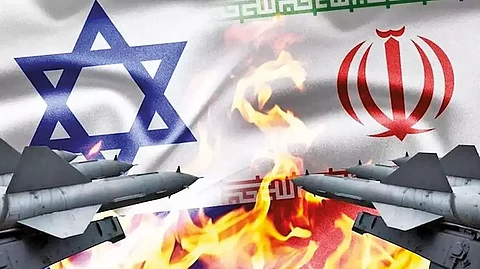
- Home
- Live Blog
- Breaking News
- Top Headlines
- Cities
- NE News
- Sentinel Media
- Sports
- Education
- Jobs

TEL AVIV: The middle east is on the cusp of a wider regional conflict and the recent escalation between arch enemies Israel and Iran has the potential to spiral out of control.
Israel has vowed to hit back hard against Iran in response to a deadly missile attack that involved an estimated 200 missiles fired towards critical infrastructure of the Jewish state.
According to reports, the targets of the Israeli response could be Iran's nuclear sites. Reacting to this development, US President Joe Biden has affirmed his unwavering support for Tel Aviv by saying that Israel has every right to respond.
However, he made it clear that he is not in favour of Israel launching strikes on Iran's nuclear facilities and instead, emphasized that the response should be "proportional".
Biden also confirmed that sanctions would be levied against Iran, adding that this was a topic of discussion during a call earlier on Wednesday with the leaders of the G7 countries.
Israel is reportedly planning a vicious attack on Iran's nuclear or oil facilities as a retaliatory move.
During a meeting on Tuesday evening following the Iranian attack, the Israeli Cabinet had resolved to respond forcefully, but opted to first coordinate with Washington, according to local media reports.
Meanwhile, Israel Defense Forces (IDF) Chief of Staff Lt Gen Herzi Halevi stated on Wednesday that Israel would respond to Iran's missile attack, warning that the Israeli military has the capability to "reach and strike any point in the Middle East".
"We will respond; we know how to locate important targets; we know how to strike accurately and powerfully," Halevi added.
ALSO WATCH: